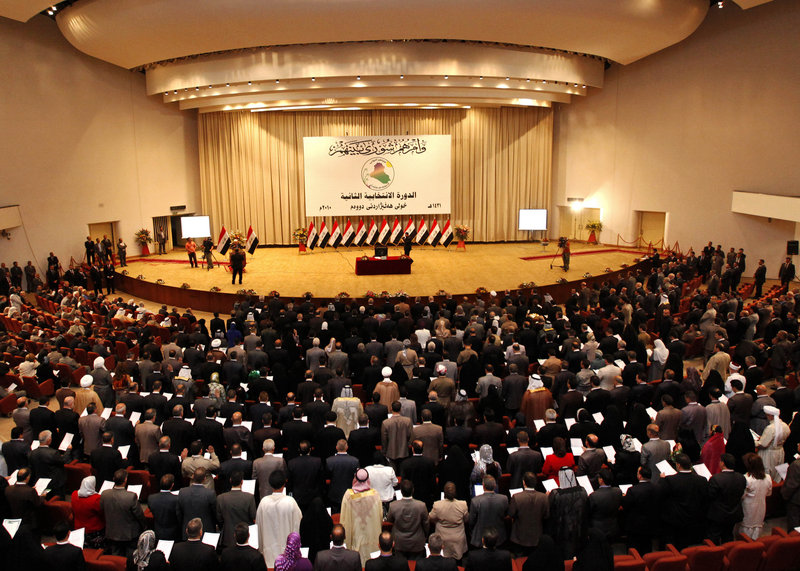BAGHDAD – Iraq’s highest court Sunday ordered parliament back to work after a virtual seven-month recess, intensifying pressure to break the political stalemate that has held up formation of a new government.
The 325 lawmakers met only once since they were elected on March 7 for a session that lasted 20 minutes and consisted of a reading from Islam’s holy book, the Quran, the playing of the national anthem and swearing in new members.
Under the constitution, parliament was required to meet within 15 days of final court approval of election results, which came on June 1. Lawmakers met on June 14 and should have chosen a parliament speaker during their first session and then the president within 30 days. But these appointments had to be put off because they are part of the negotiations between major political blocs over the rest of the new leadership — including a prime minister and top Cabinet officials.
After the June meeting, lawmakers agreed to leave the parliament session open but unattended — a technicality to allow more time to choose a new leadership and to put off choosing a new speaker or president.
But the Supreme Court deemed that decision “illegal” in its ruling Sunday.
“The federal Supreme Court decided to cancel this decision, binding the parliament speaker to call on lawmakers to convene parliament and resume work,” the ruling said. The delay “violated the constitution,” it added.
Parliament’s absence has meant inaction on business-friendly reforms, such as streamlining bureaucracy and clarifying rules for foreign investment, among other major decisions.
The absent parliamentarians are earning $22,500 a month in salary and housing allowance — far more than the average $800 monthly salary of an Iraqi professional. And that doesn’t include a $90,000 stipend they were given after they were sworn in to cover expenses for the next four years.
The court’s ruling effectively turns up the pressure to break the seven-month-old impasse on forming a government.
“This decision will put pressure on political blocs to speed up their negotiations, and to nominate a prime minister candidate,” said Kurdish lawmaker Alaa Talabani, a relative of Iraqi President Jalal Talabani.
Sunday’s court order settles a lawsuit brought by independent watchdog groups against parliament’s acting speaker, Fouad Massoum. Massoum said Sunday he had not yet seen the order but had no choice but to abide by the court’s demands.
Send questions/comments to the editors.



Success. Please wait for the page to reload. If the page does not reload within 5 seconds, please refresh the page.
Enter your email and password to access comments.
Hi, to comment on stories you must . This profile is in addition to your subscription and website login.
Already have a commenting profile? .
Invalid username/password.
Please check your email to confirm and complete your registration.
Only subscribers are eligible to post comments. Please subscribe or login first for digital access. Here’s why.
Use the form below to reset your password. When you've submitted your account email, we will send an email with a reset code.